New wave Dubai: how the desert mecca is embracing its roots
Homegrown chefs are building a cuisine all the city’s own, and winning fans in high places.
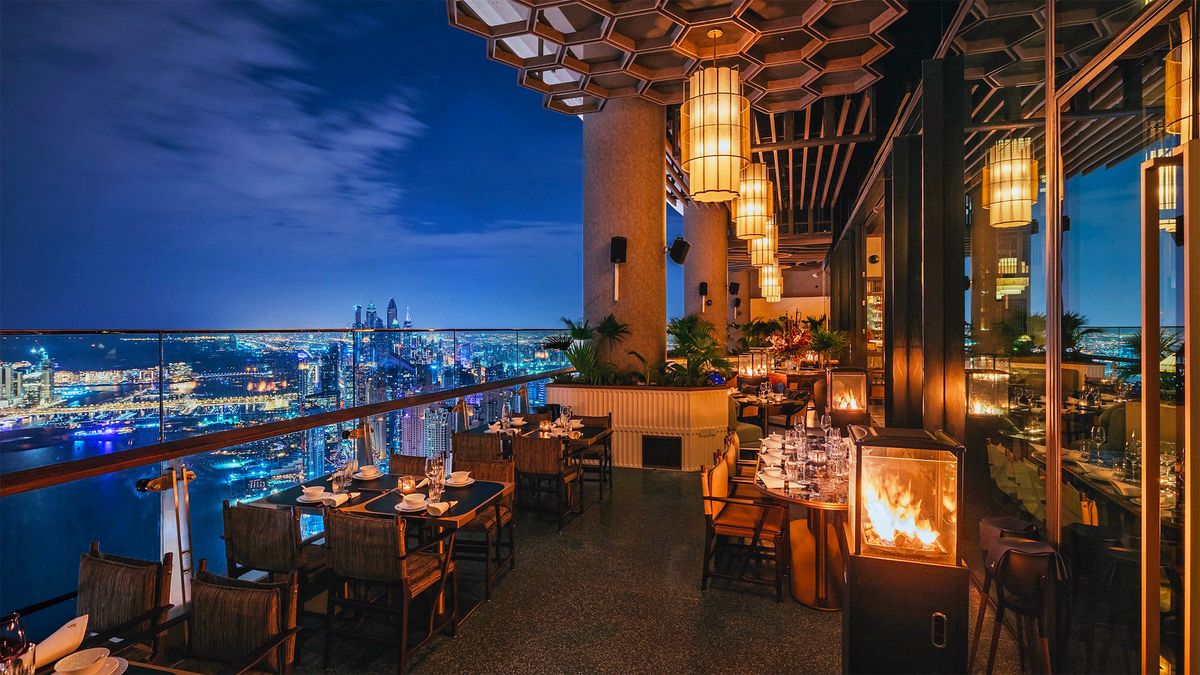
Dubai’s bling has long been borrowed from other places. Drive around and you’ll see many familiar sights: a tower that looks like Big Ben, two side-by-side knockoffs of the Chrysler Building, a London Eye-style Ferris wheel.
And the city’s most popular restaurants have been upscale global chains such as Hakkasan, La Petite Maison and Nobu. However, Dubai is now offering something different.
After two decades of exponential growth, the once-sleepy trading port in the desert is cementing a new, unique cultural scene through dining and world-class hotels.
The most interesting expression of that is its homegrown restaurants, with budding stars who seem to open new places every week.
One of the most prolific is chef Izu Ani, who opened his first Dubai restaurant in 2013. He now has eight in the city and counting, and he’s been celebrated by the emirate’s top royals, whose visits Ani has documented on his Instagram feed.
“Here it’s the Middle Eastern dream,” Ani says, “where if you have the appetite and you have the sustainability to stay the course, you can build something.”
A torrent of money flooding in the past two years doesn’t hurt, either. In 2022 more millionaires moved to the United Arab Emirates than anywhere else in the world.
It’s one of the few countries holding its borders open for Russians – and their cash – continuing to fuel a property boom. Others might be escaping crises at home, including people from Lebanon or Ukraine.
Then, there are the bankers relocating to Dubai from Hong Kong or Singapore after a few difficult years of Covid-19 isolation, as well as Europeans avoiding high taxes and energy prices.
All that cash sloshing around means investors are competing to finance local chefs – both well-known quantities and up-and-comers.
They’re seeing a return: Michelin, sponsored by Dubai’s tourism department, awarded stars last summer to 11 restaurants and gave 14 others a Bib Gourmand designation – not quite star level, but it allows them to hang the Michelin shingle on the door.
With 15 places on the list, Dubai dominates the Middle East & North Africa’s 50 Best Restaurants selections, now in its second year in the region.
Shaw Lash, an American chef specialising in Mexican cuisine, struggled to find momentum to open a restaurant in Amsterdam but quickly attracted investors in Dubai.
“The attitude about investing in restaurants here is you can make money, it’s not perceived as a losing scenario,” says the chef, who opened Lila Taqueria in December.
“There’s a whole lot more people that have a little bit of extra money that they’re just interested in playing with.”
To be sure, Dubai is still a major market for big international brands seeking investment, especially as costs of labour, rent and electricity make it more difficult to profit in other cities.
Malcolm Wood, who just opened a branch of his Chinese restaurant Mott 32 at the five-star Address Beach Resort, says Dubai is a place where fine dining can still see big margins.
“When you’ve got an international brand, you want to be in Dubai, in Vegas and London secondary. And then New York,” he says. “Dubai is definitely positioned at the top of that culinary market.”
One reason chefs are pouring into the city is that developers are building hotels at a lightning pace. The number of available rooms in Dubai reached 143,634 in 2022, up 45.7% from 2016, according to STR, a global hospitality data and analytics company. That’s a growth rate second only to Qatar, which hosted the World Cup last year.
Travelling to Dubai soon? Below, all you need to know about where to eat and rest (or party all night).
What to do
Traditional tourist activities – a city stroll or an historic monument visit – don’t apply in Dubai. But there’s plenty to do besides hanging out at a resort or shopping at the mall. Here are some of our favourite recommendations for visitors:
Sheikh Mohammed Bin Rashid Al Maktoum Centre for Cultural Understanding:
Plan in advance to have a meal and listen to Emiratis explain their history and culture through organised talks and tours – budget half a day for the full experience.
The staff is happy to answer all questions, no matter how ignorant or awkward. Although the centre may not have a Michelin star for its dining room, this could be your only chance to interact with Emirati citizens on your trip – they make up just 8% of the city’s population.
Kite Beach:
This free beach is one of Dubai’s best places to go for a walk, run or bike ride, or to just relax. There are plenty of places to eat – like Salt, a food truck that serves burgers – as well as activities including volleyball, padel and, as the name suggests, kitesurfing.
Alserkal Avenue:
Take a walk around the galleries in Dubai’s warehouse district, grab a meal at Nightjar Coffee Roasters, then head across 6a Street to the Mediterranean-style Courtyard to shop in its boutiques.
Where to dine
Jun’s:
Kelvin Cheung opened Jun’s in 2022 after spending years in India as one of Bollywood’s favourite chefs. The menu has influences from his time in Chicago, India and Hong Kong. Don’t miss the rainbow heirloom carrots in smoked labneh.
Orfali Bros:
The celebrated restaurant from three Syrian brothers topped the region’s 50 Best list this year. Memorable dishes include the corn bomb, which features the thinnest Parmigiano shavings you’ll ever eat; the Eat H, a tomato and bulgur wheat-based dish; and the caviar bun, essentially a profiterole topped with kaluga fish eggs.
Lila Taqueria:
American chef Shaw Lash makes wood-fired tacos using fresh masa tortillas from nixtamalized corn ground daily. Lash, who once worked under Michelin-starred Rick Bayless, now feeds government ministers and members of prominent families who quickly fill up the 35-seat restaurant.
Gaia:
This Greek restaurant from chef Ani, located in the business district, is a perennial favourite for residents. A place to see and be seen.
Where to stay
There’s no shortage of clean, spacious hotels in Dubai – and you can get a deal if you don’t mind being farther from the beach and slightly north or east of the city. There’s also an abundance of places to spend $1,000-plus per night on a room, so take your pick.
The Luxury Option:
Before Atlantis the Royal opened this year, the Bulgari Resort was the city’s standard-bearer for glitzy luxury. Model Bella Hadid and actress Alicia Vikander were among the celebrities at the hotel’s 2017 opening.
The 121-room property is built on a human-made, seahorse-shaped island. It’s home to two of Dubai’s 11 Michelin-starred restaurants: Il Ristorante – Niko Romito, which received two stars, and Hoseki, a Japanese restaurant with one star. From 6,500 dirhams (AUD$2,617)
A Desert Festival Retreat:
Terra Solis, a new getaway by festival organiser Tomorrowland, is a way to experience the desert without giving up resort amenities. Located a 30-minute drive outside Dubai, it’s not a wellness retreat: The property’s central feature is a pool surrounded by DJ booths and stages where it hosts several large concerts a year. From 950 dirhams (AUD$382)
A Wallet-Friendly Choice:
You wouldn’t know if you walked into Al Bandar Rotana, in the northern part of the city, that this hotel is a budget option. Rooms are spacious and new, with modern design and plentiful amenities.
The massive bathrooms include a separate, spa-like tub. There’s also a rooftop pool with downtown skyline views, and the hotel offers three restaurant options. From 477 dirhams (AUD$192)
This article is published under license from Bloomberg Media: the original article can be viewed here
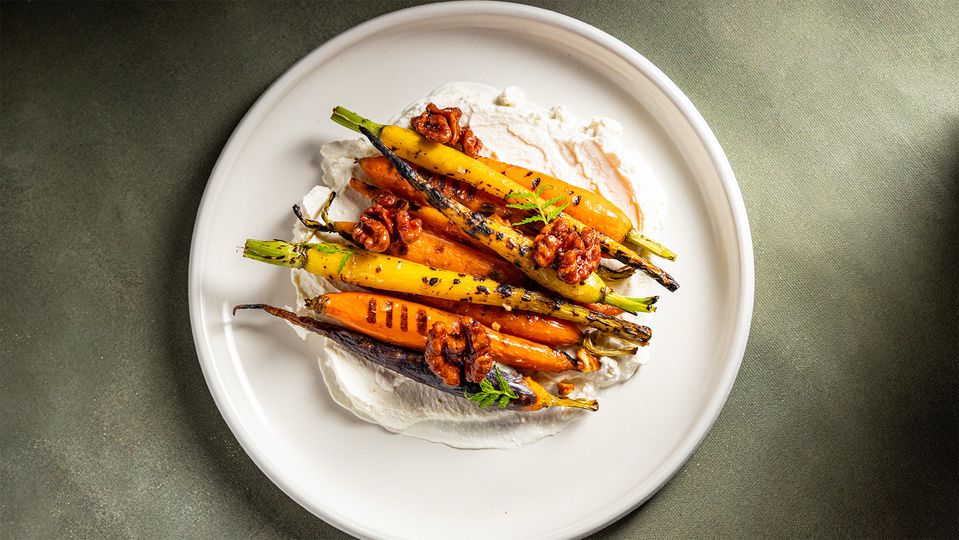
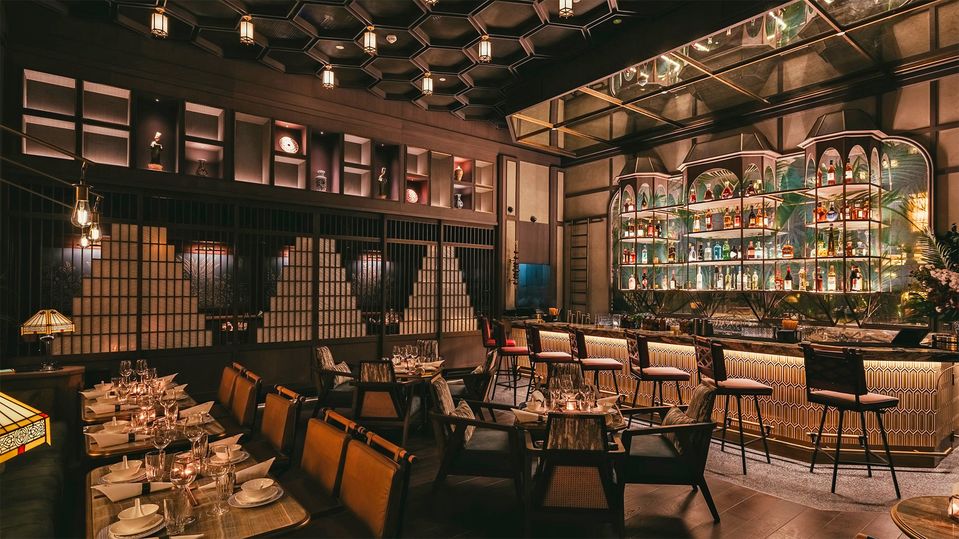
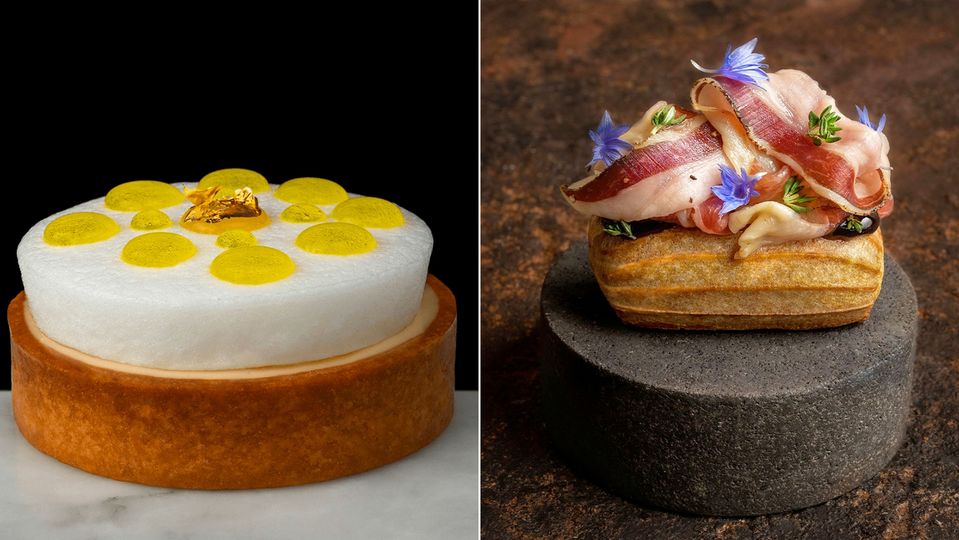
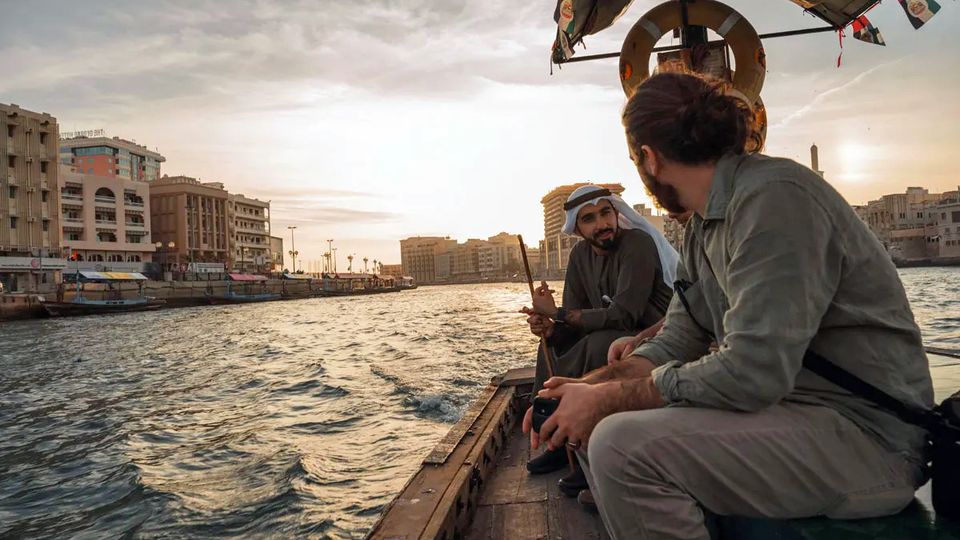

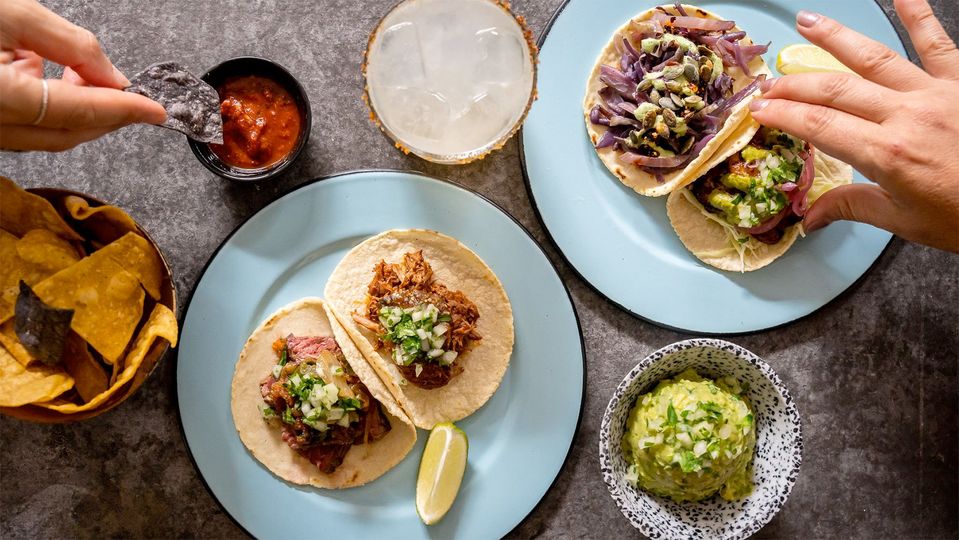
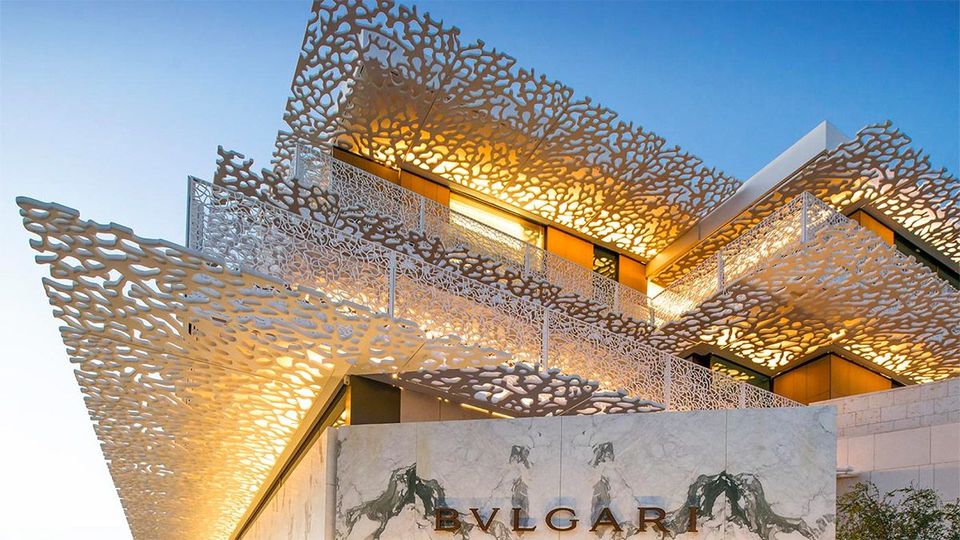
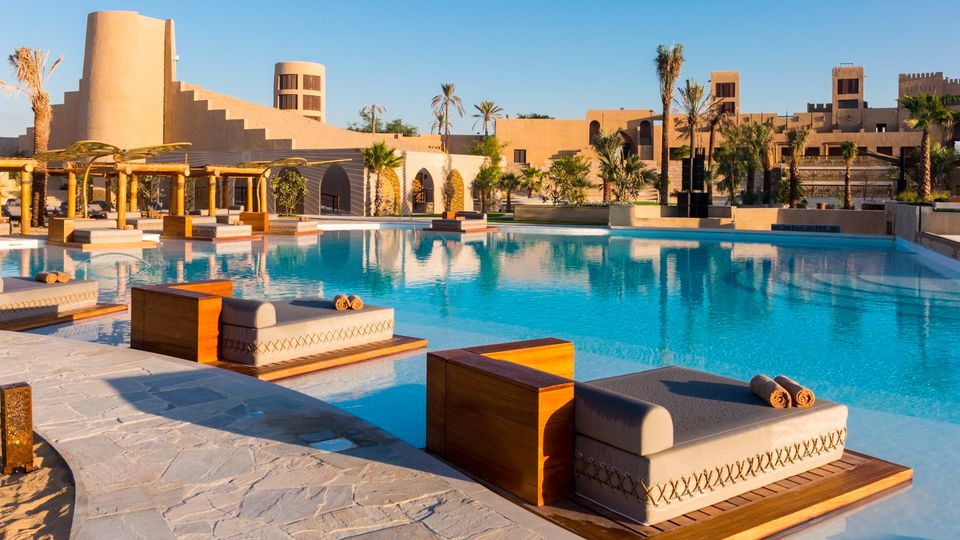
Hi Guest, join in the discussion on New wave Dubai: how the desert mecca is embracing its roots